Riccardo Muti: The conductor should be responsible for the action on stage
mainThe maestro has been sharing some thoughts in Salzburg, where he’s conducting a concert performance of Verdi’s Ernani. No director?
From the festival press release:
He likes the idea of a conductor who is not only responsible for the orchestra and the music, but also has a say in the staging. This is especially important to him because so many details are inherent in Verdi’s music, says Riccardo Muti. “Today, the conductor and director are often considered completely different, “ the maestro adds. “However, this used to be different, and the conductor was also responsible for the action on stage – precisely because it cannot be separated.”
He remembers many discussions with directors about the implementation of ideas – for example, in the case of Gluck’sOrfeo ed Euridice, where Gluck wrote a cheerful overture, despite the tragic tale of the opera. “He did it in order to give the audience time to find its seats and finish its small talk,” says Maestro Muti. At the time, such was the custom. Then, however, in a stroke of genius, Gluck modulates abruptly from C Major to C Minor. “Suddenly you’re at a funeral,” the conductor says. At the time, a director wanted him to wait at that very moment until the chorus was on stage. “That, however, would weaken the genius of this musical turning point,” says Riccardo Muti, adding that he hates conservative stagings – and is open to new productions, as long as they are well-made and function in harmony with the music.
He fondly recalls a rehearsal period with Domingo, who had sung the role of Otello more than 300 times at that point. “And yet he took a month to rehearse with us,” says the maestro. “It is a question of respect. Domingo was completely on board with the fact that it was to be a new interpretation.” And developing such an interpretation simply takes time. Riccardo Muti has been studying Ernani already since 1982 – the year he conducted it for the first time at La Scala in Milan.
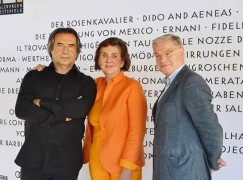
Photo: Salzburg Festival / Anne Zeuner

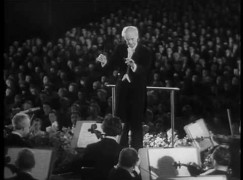
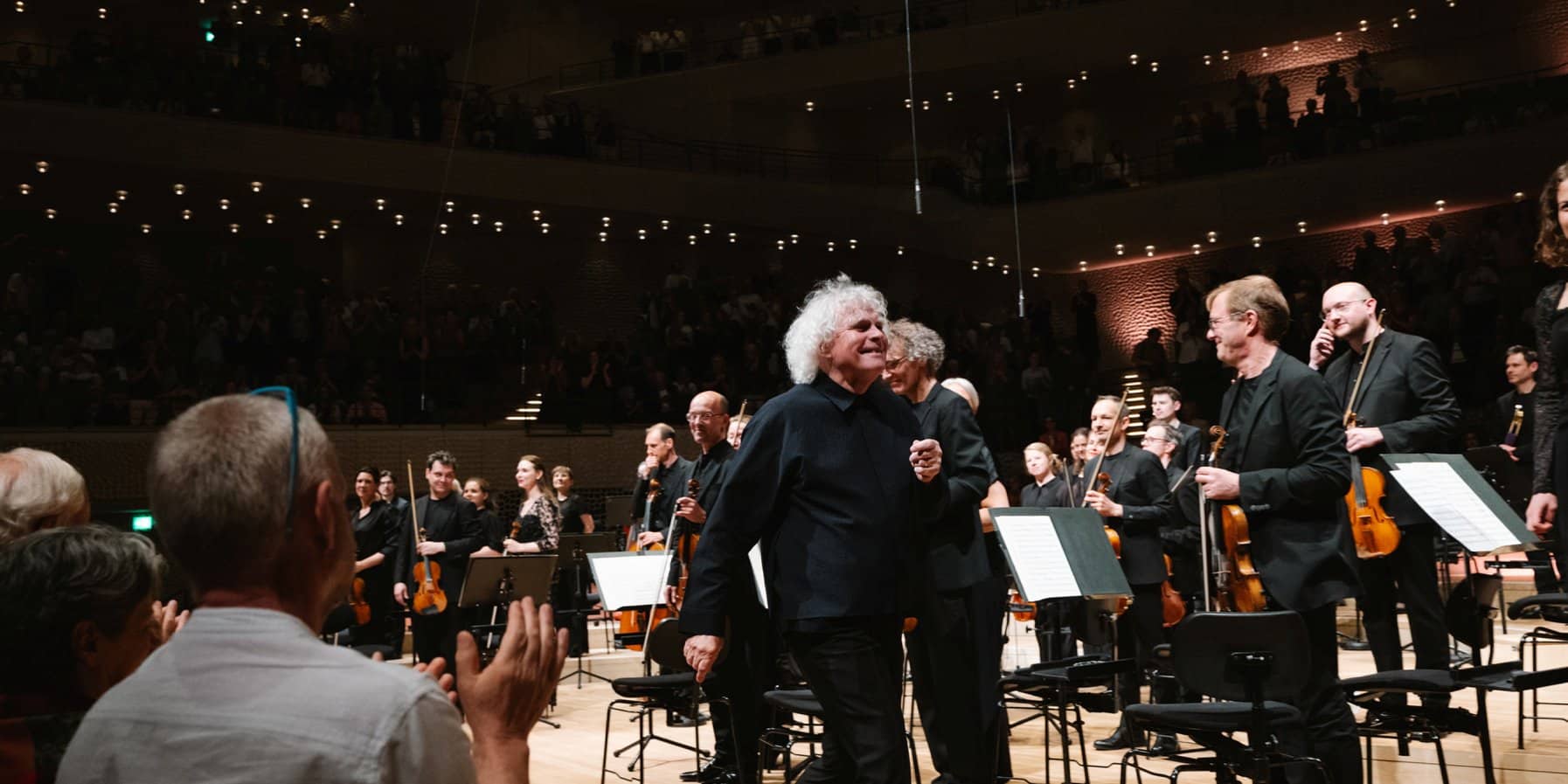
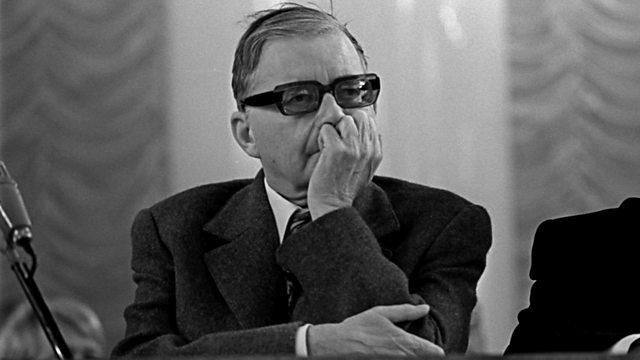
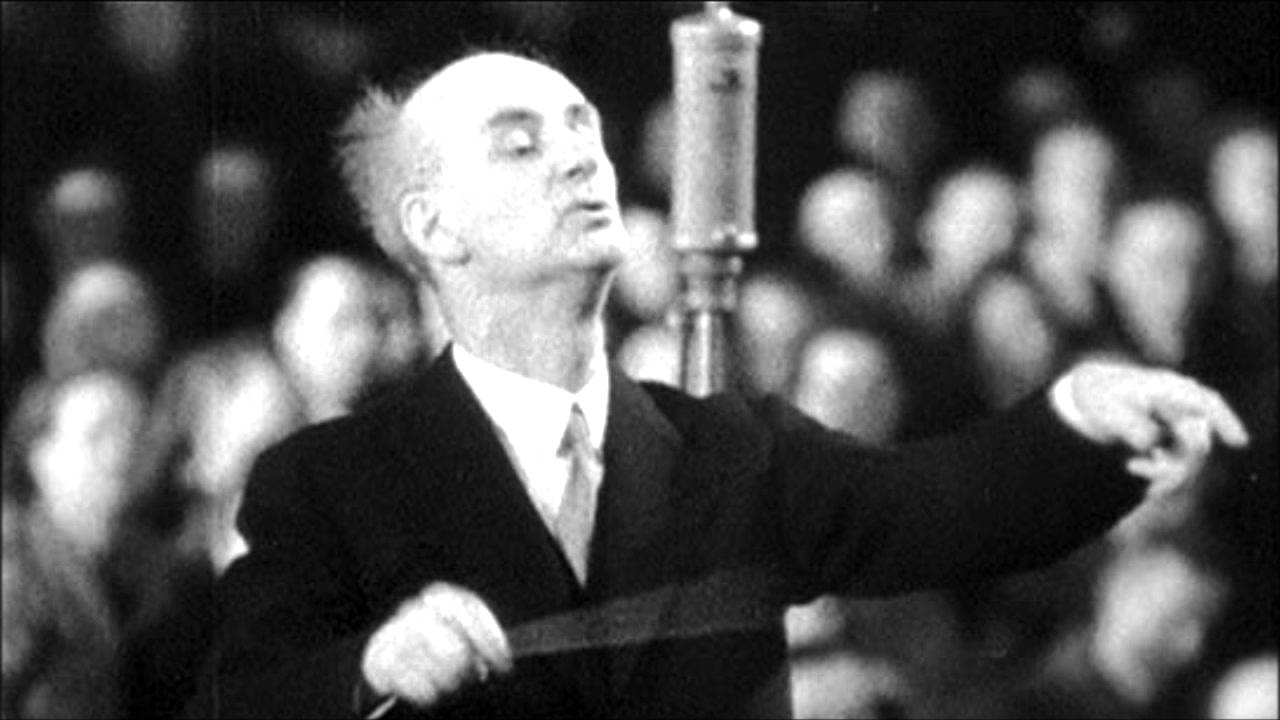
I’m inclined to disagree. Opera is a stage play — it needs a director. I’m afraid that the conductor will just have to relinquish the idea that they get to control everything in that situation.
If it’s JUST the music, then fine. But once it’s a visual experience, the conductor has to learn to collaborate.
It’s not a visual experience, in the sense of visual only. Unless you close your ears. Opera is always a combined audiovisual experience, with the sound being the fundament and most important ingredient, driving the emotions and drama, and the visual staging illustrating it on top.
There are many fine opera recordings – audio only – which relay the drama and the art form excellently.
Now imagine a film about the visuals of an opera staging, only visuals, no sound… It has no life of its own, it means nothing without the music.
His point as far as I understand is not that he doesn’t want to cooperate, but that today the stage direction is having too much power and in fact does not cooperate with the music, rather tries to abuse the music as tapestry for their subjectivism.
Well said!
Excellent formulation of the problem of Regietheater.
“Opera is always a combined audiovisual experience, with the sound being the fundament and most important ingredient”
If it’s combined, then the authority has to be combined, and if the sound is the most important thing, then do it as a recital and don’t stage it.
Herbert Von Karajan is Muti’s Salzburg “Spirit Animal.”
This statement explains perfectly why he’s the former music director of La Scala and no longer the music director of La Scala.
The Salzburg reviews of Fidelio support Muti’s case IMO.
How so? Would be curious to know more.
“This statement explains perfectly…”
If only it were so simple!
If only it were true!
The Byzantine power struggles at the end of the Muti era at La Scala are not fit for a family audience.
Just the intrigues on the political retroscena would make the Sopranos look like a Salvation Army choir.
Only Hunter S. Thompson could do justice to the Scala dealings.
(You know, his semi-fabricated quote: “The music business is a cruel and shallow money trench, a long plastic hallway where thieves and pimps run free, and good men die like dogs. There’s also a negative side.”)
A star conductor who resents sharing authority? What a shocker…
Ernani being studied since 1982 -what little mind would spend all that
time on a pointless little opera .1982 to 2015 ???????
Pointless little comment as usual from Milka….But,having lived with 35 or so years of German Regietheater hype,onanism and self aggrandization,Maestro Muti’s words come as a blessing to me.
Well that’s 35 yrs . gone to waste-and now back to Ernani an 1800s ridiculous melodrama .At least with Trovatore one could get a good laugh .
I do laugh when I read your scribblings ……..
Muti doesn’t like modern productions,meh doesn’t like staging either, he only wants all the singers on the pros staring at him, possibly in pretty costumes… To me that’s a concert.
Actually, he has a good point. Do you want to see works as intended by their composers/librettists, or do you want to see the creations of stage directors? They are not necessarily the same thing, and the gulf in some places is now so wide that operas have become entirely new works with old sound tracks. Where is the collaboration in that? I’m not talking about ‘museum’ productions but faithfulness to the intentions of the original creator. If they become new works then let’s be up front and describe them as such, and audiences will know what to expect. It is dishonest to describe a production as Verdi’s, for example, when patently it is not.
True.
The music has its own aura which cannot be ignored without costs to the overall result. When you see Don GIovanni strolling in a car parking building or having his hamburger at MacDonald’s, you wonder: what’s Mozart doing here?
What we see is the outside of what happens, and what we hear is the inside of it, and it is at the inside where the heart of the art form is. Opera wants us to emotionally experience the narrative we see unfold on stage. Even a ‘museum staging’ will not damage the work. (What’s wrong with a museum anyway?)
“Do you want to see works as intended by their composers/librettists, or do you want to see the creations of stage directors?”
Or the creations of conductors — who are also just as fallible as anyone else? They all disagree with one another as to how things can be conducted, so they can’t ALL be right. The composers and librettists in many instances are stone dead, dude. Are you going to hold a séance to ask them what their wishes are?
Jesus, you people sound like necromancers who are frightened of mispronouncing the sacred syllables for fear that the demon in the cauldron will strike you dead for it. Do any of you actually ENJOY music?
The matter is quite simple really. By all means perform a Haydn string quartet on an electric guitar, zither, flugelhorn and bongo drums. It might be a fascinating thing to do, but it wouldn’t be Haydn. Better still, write something entirely new – but then again, that would require an original talent.
Actually, Karajan went into a short séance every time he conducted an orchestra.
Karajan had control over the staging of his Ring Cycle.
The results are questionable, somewhat akin to Star-Trek at times.
And yet, in many ways he had a very keen sense of style so it remains surprising.
The Ring is impossible to stage satisfactory (as a whole), due to the impractical fantasies of its composer.
But Karajan’s Salzburg Parsifal (in the eighties I believe) seems to have been entirely convincing, a mixture of realism and abstraction, because of having been conceived from the music.
I couldn’t agree more with Maestro Muti. The title of this post is misleading, he did not say that the conductor becomes the stage director. He said that the stage director has to respect the music, and if he or she doesn’t its up to the conductor to stand up for the music. I think that opera is and should be a perfect balance between music and drama, sound and visual. But today it’s gone overboard and the “power” is nearly always only in the directors hand. Conductors are afraid to speak up and when they do they are accused of being old fashioned. The example of the Orfeo is a perfect example! musically the dramatic change from C major to minor is crucial and if a stage director does not respect that, then he or she should do straight theater and not opera! modern, great reties are wonderful, but they should not destroy the music or treat the music like a sound track to another story!
Spot on.
Disconnection between stage director and conductor, between the visual and the aural element of opera, can have startling results, as we know from the postwar tradition of Regietheater. In 1992, a logistical misunderstanding at the theatre in Amsterdam led to the unusual production where Butterfly was played in the pit, while the audience saw Turandot on stage. Not only was it not noticed – apart from the guest conductor who, however, thought it was a normal Regietheaterexperiment – but it was a great success.
Thanks you, Maestro. Stick to your convictions. With the lack of musical understanding, let alone musical training, amongst many directors, it is of the highest importance that someone is there to insist on respect for and fidelity to both music and text.
Per tante, tante cose… BRAVO ET GRAZIE.